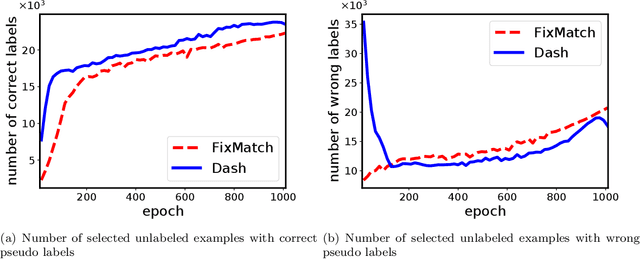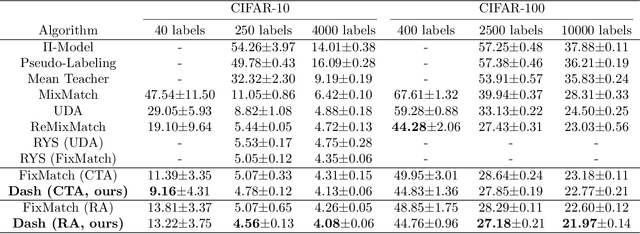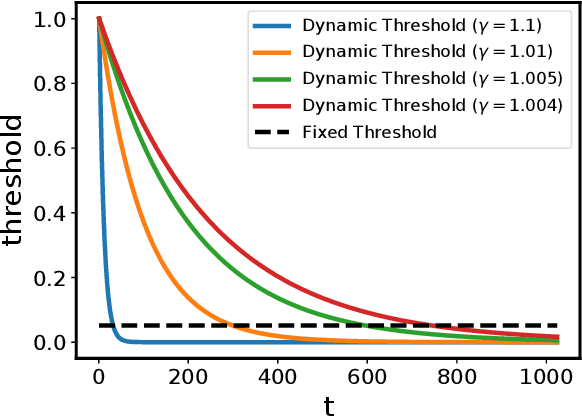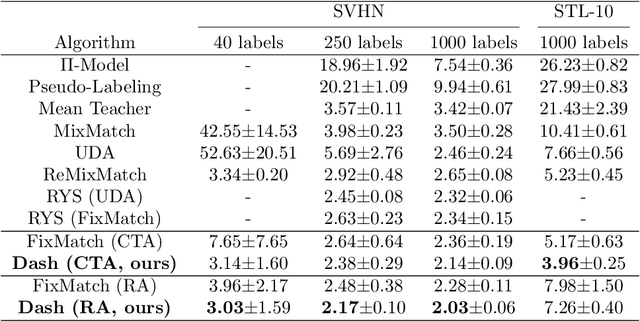Jinxing Ye
Dash: Semi-Supervised Learning with Dynamic Thresholding
Sep 01, 2021



Abstract:While semi-supervised learning (SSL) has received tremendous attentions in many machine learning tasks due to its successful use of unlabeled data, existing SSL algorithms use either all unlabeled examples or the unlabeled examples with a fixed high-confidence prediction during the training progress. However, it is possible that too many correct/wrong pseudo labeled examples are eliminated/selected. In this work we develop a simple yet powerful framework, whose key idea is to select a subset of training examples from the unlabeled data when performing existing SSL methods so that only the unlabeled examples with pseudo labels related to the labeled data will be used to train models. The selection is performed at each updating iteration by only keeping the examples whose losses are smaller than a given threshold that is dynamically adjusted through the iteration. Our proposed approach, Dash, enjoys its adaptivity in terms of unlabeled data selection and its theoretical guarantee. Specifically, we theoretically establish the convergence rate of Dash from the view of non-convex optimization. Finally, we empirically demonstrate the effectiveness of the proposed method in comparison with state-of-the-art over benchmarks.
Learning to Cluster Faces via Transformer
Apr 23, 2021



Abstract:Face clustering is a useful tool for applications like automatic face annotation and retrieval. The main challenge is that it is difficult to cluster images from the same identity with different face poses, occlusions, and image quality. Traditional clustering methods usually ignore the relationship between individual images and their neighbors which may contain useful context information. In this paper, we repurpose the well-known Transformer and introduce a Face Transformer for supervised face clustering. In Face Transformer, we decompose the face clustering into two steps: relation encoding and linkage predicting. Specifically, given a face image, a \textbf{relation encoder} module aggregates local context information from its neighbors and a \textbf{linkage predictor} module judges whether a pair of images belong to the same cluster or not. In the local linkage graph view, Face Transformer can generate more robust node and edge representations compared to existing methods. Experiments on both MS-Celeb-1M and DeepFashion show that our method achieves state-of-the-art performance, e.g., 91.12\% in pairwise F-score on MS-Celeb-1M.
 Add to Chrome
Add to Chrome Add to Firefox
Add to Firefox Add to Edge
Add to Edge